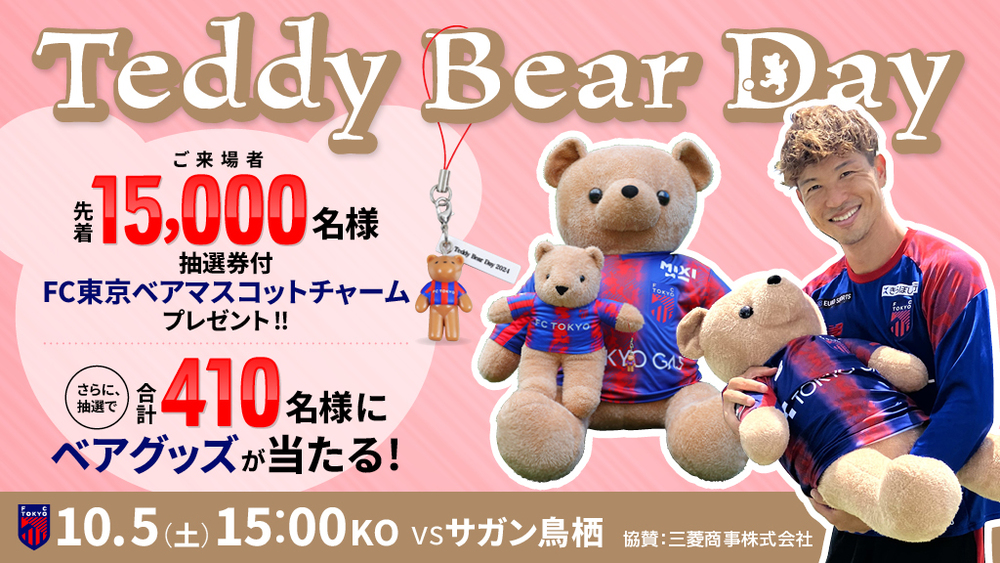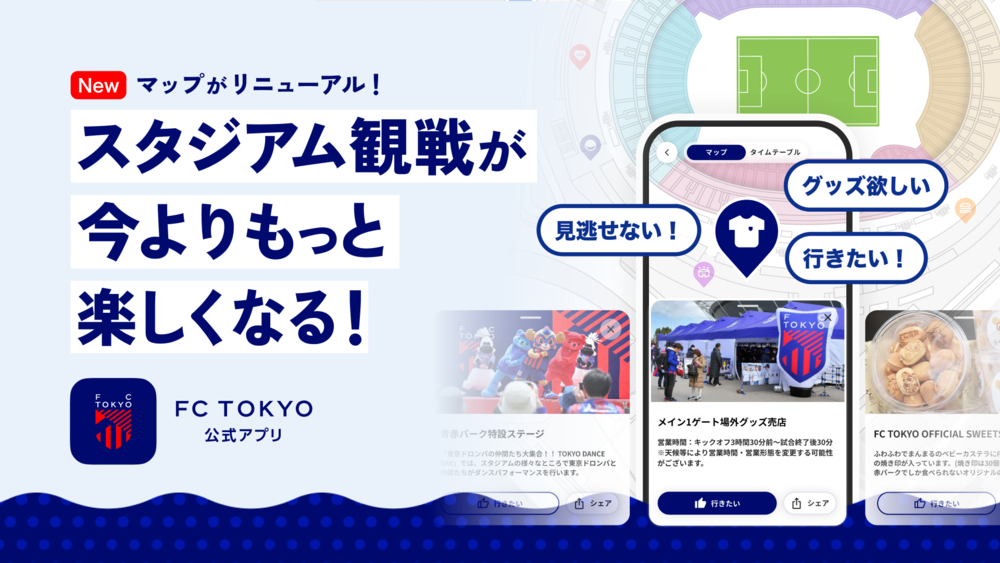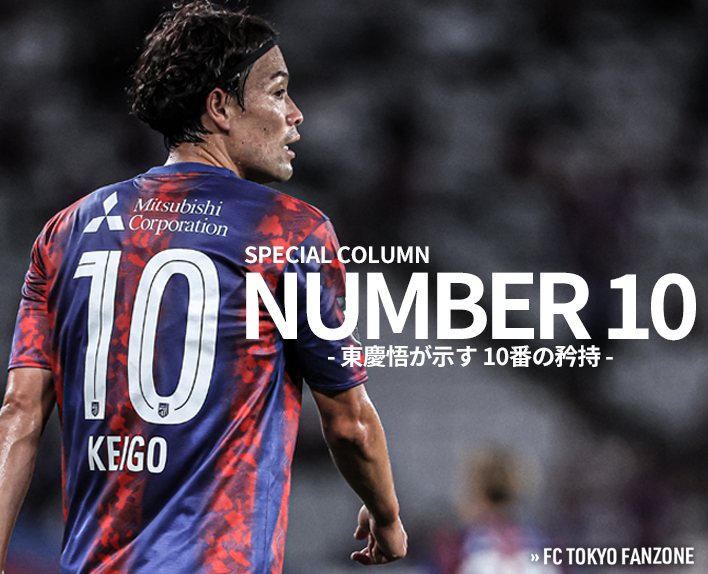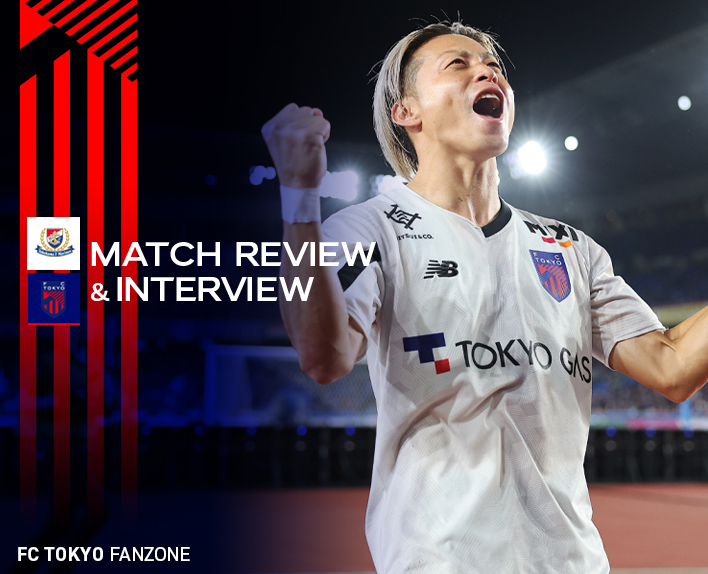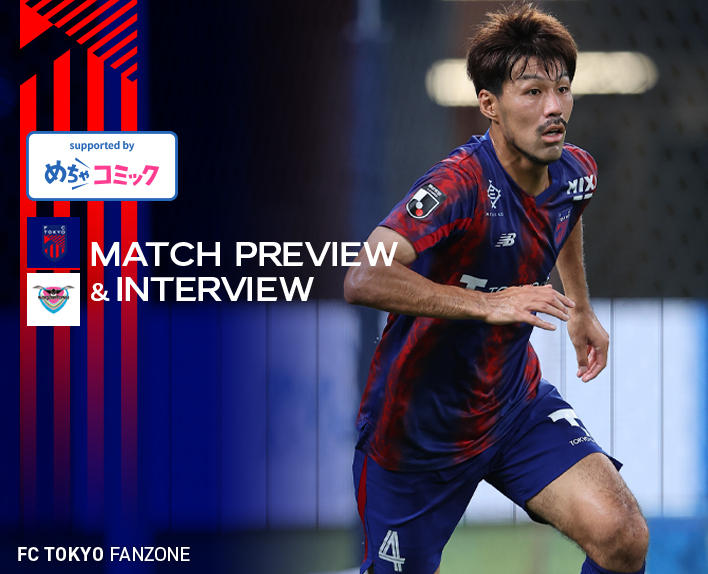It was just before the opening five years ago. Keigo HIGASHI was smiling wryly as he said, "I wasn't really expecting to hear about two things all of a sudden." First, he was named the successor to the number 10 jersey by Yohei KAJIYAMA, who retired after the 2018 season, and was entrusted with the captain's armband by coach Kenta HASEGAWA. Burdened with two heavy responsibilities at once, he honestly said, "It's honestly heavy," and continued on.
"I have a lot of worries (bitter smile). But I want to continue growing with this team. I hope that will create a positive pressure. Killing two birds with one stone? I hope that will be the case."
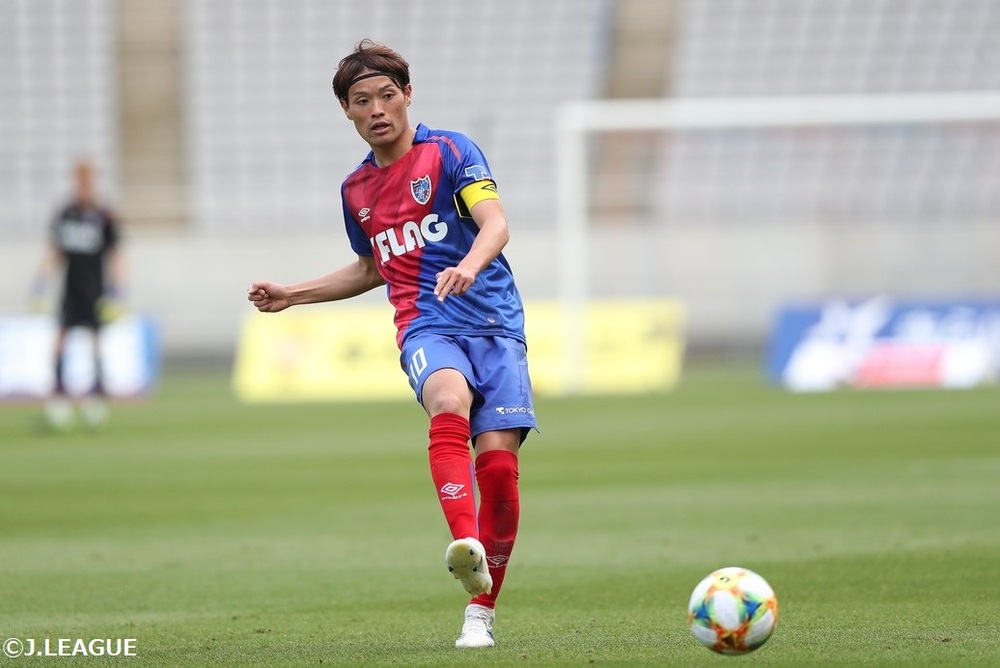
I have often found myself in situations where I was asked about the ideal number 10 or the image of a captain. Each time, I would ponder, thinking, 'What could it be?' and I have seen the struggle to come up with an answer. However, I remember that he always prefaced it with, 'I don't know, but...' Perhaps he has been trying to draw out his own color in that way.
In the 2019 season, Tokyo came the closest to winning the league in the club's history, and in the following season, they achieved their third Levain Cup victory. Year after year, I have strongly thought, 'I want to make this team stronger. I want to win in Tokyo.' Looking back now, I believe that from that point on, Higashi grew to love soccer and Tokyo even more.
It was always like that.
"I want to win with everyone on this team." I have kept saying that. I don't understand the weight of love, but I have always shown it through genuine actions, not just words, for my teammates. That is the image of Keigo HIGASHI, the captain wearing the number 10, that I know.
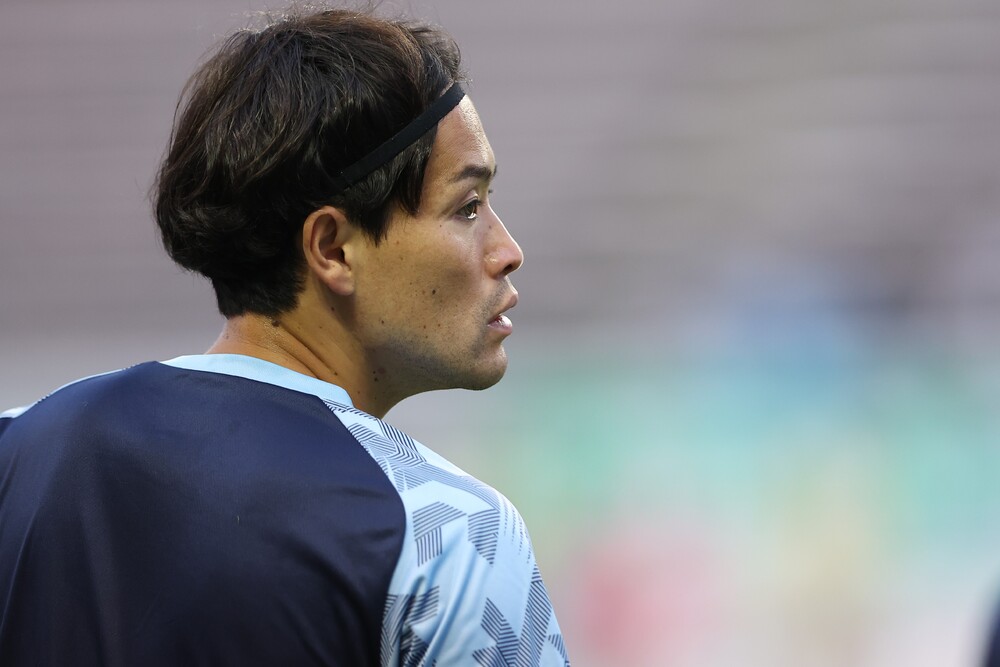
Since the 2022 season, when Higashi handed over the armband, he has often gone through difficult times. This season was no different. Although he made the bench from the opening match, he did not get the chance to start. After suffering a right thigh muscle strain following Sec. 5 of the Meiji Yasuda J1 League, he was away from the squad for about two months, and even when he returned, there was no place for him. He continued to miss out on matches from the bench. He may have felt somewhat sidelined at some point.
"Every season, I aimed for the league championship, so there were frustrations and things I thought about. That's why I wanted them to utilize me better. It's not about whether I get to play in the matches or not. I'm not the type to get discouraged if I can't play. I've gained experience in this world, and I felt there was more I could do. When the team wasn't doing well, I listened to what others had to say and conveyed what I could within my limits. However, being in a position where I am not playing has its limitations. You can't understand the feeling unless you go through the tough times together. It doesn't resonate with the others, and it inevitably feels like I'm speaking from the outside. Honestly, I found that to be difficult."
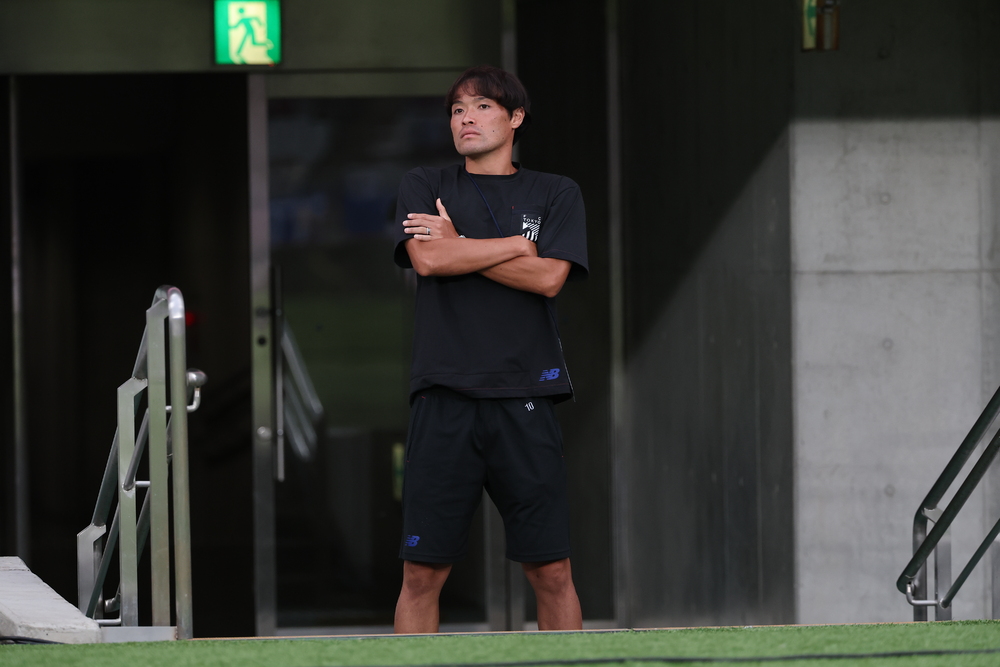
Still, he clenched his fists tightly and gritted his teeth. Even during the summer training sessions under the scorching sun, he did not slack off or complain, fighting on at the age of 34 among the younger players. If he could hold on here, another chance would come. "Someday... again someday," he continued to count the days and waited for his turn.
Such a period lasted for about 4 months, and on July 20, in Sec. 24 against Kashima Antlers, he made it to the bench.
However, after that, he only warmed the bench for two consecutive matches, and in the subsequent rival matches against Kawasaki Frontale and Tokyo Verdy, he was once again pushed out of the bench. The tension in the thread could have snapped at any moment.
There was someone watching over the eastern figure. After the break following the Kashima match, I was approached by Takashi HARA, who will be coaching the top team starting this season.
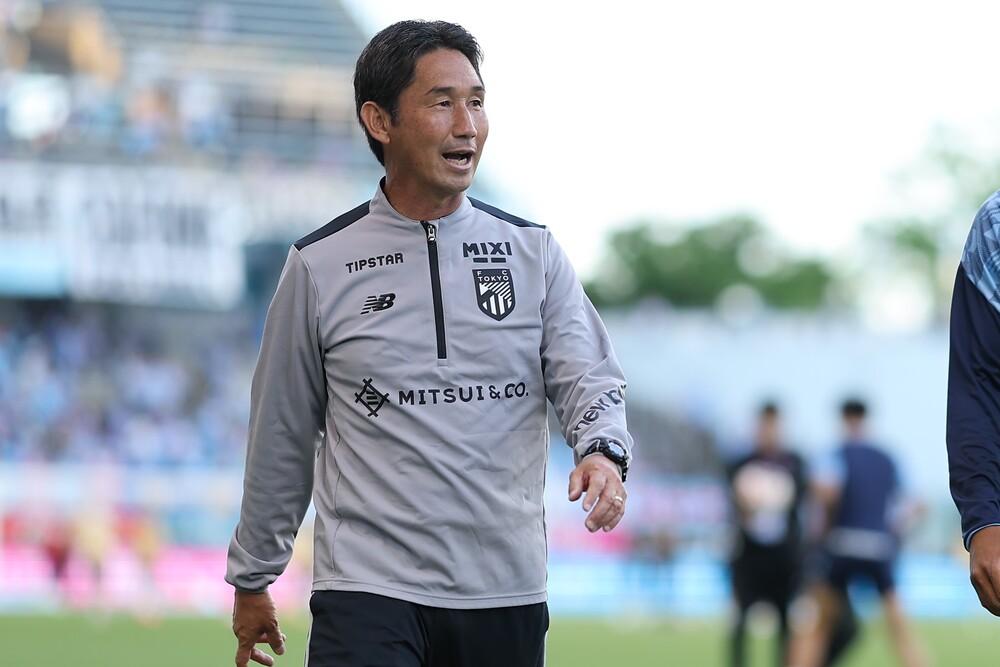
"If I'm not going to be appreciated for doing more... At that moment, I was called by Okahara-san, and we talked about various things. I really think that was significant."
During his active career, Okuhara, who first wore the blue and red number 10, said, "I have always thought that I could understand the pressure of not being able to wear the number 10 a little better than others. The frustration of everyone expecting you and wondering why the number 10 is not on the field can turn into a rebellious spirit. I have gone through that myself, and I believe that as long as he has the opportunity, Keigo will be just fine."
In the later years of his career, Okuhara had a similar experience. He knew how much it could save him just to have someone next to him who understood him. Therefore, he quietly cared for Higashi, understanding that this was not just hindsight, but that game control and the ability to unite the players were required by the team. I have thought that we need Keigo HIGASHI to win, so I have been looking for an opportunity to help.
Okahara realized through the conversation that Higashi's limits were near. "I was holding on, and I was barely managing to stay afloat." Therefore, he immediately took action and asked coach Peter CKLAMOVSKI, "After working so hard, how can Keigo get to play in the match?" The coach responded, "I trust him, and he is a player I like." Okahara advised, "If that's the case, I think it's tough if he doesn't understand how he can get to play in the match." He then conveyed the response to Higashi, who had made his appearance after about five months in the match against Kyoto Sanga F.C. on August 24 in Sec. 28.
"I thought I was able to play well, but often it didn't seem to get across for some reason. I wondered what I was doing this for, it was tough. Just when I was thinking that, Mr. Okuhara talked to me. I was happy to know that there are people who understand me."
In the following match against Sanfrecce Hiroshima, he came on as a substitute and dramatically changed the one-sided flow of the game. The team rallied from a 3-goal deficit to just a 1-point difference, and Higashi reflected on the match by saying, "I didn't do anything special."
"I had prepared to make an impact in the time given. I fought at key points and, having observed from the outside, I thought it would be good to suggest a few things that were lacking or could be improved. Until then, I had been pushing too far forward, so I tried to switch to the opposite side and even mixed in some long balls intentionally. I was able to showcase the plays I had envisioned, like how to make vertical fast attacks effective."
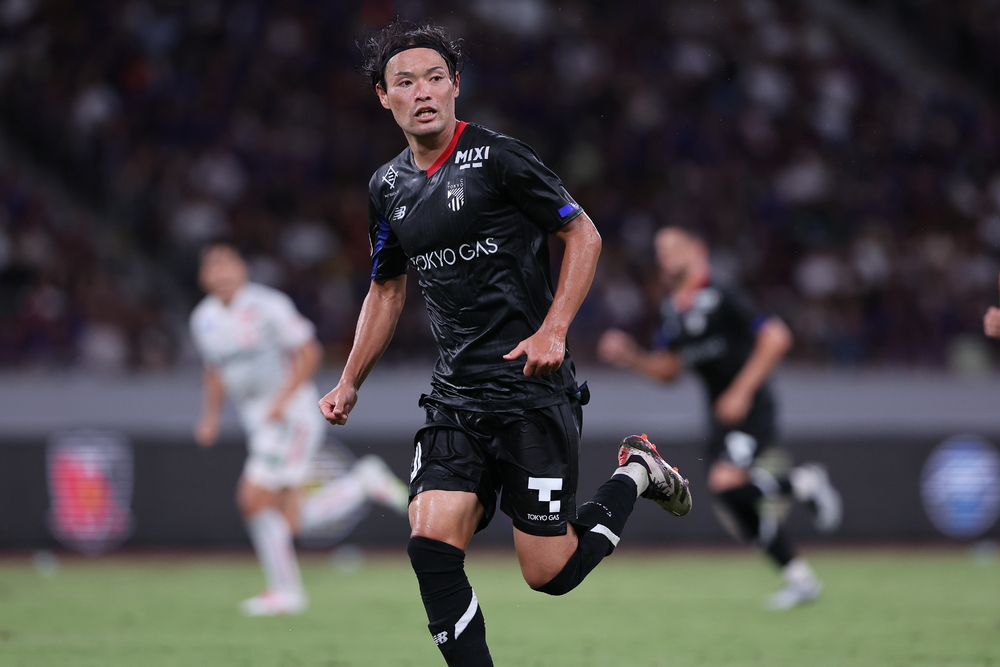
And then, the long-awaited moment arrives. On September 14, during Sec. 31 against Nagoya Grampus at Japan National Stadium, the opportunity for the first starting lineup of the season finally came. Before the match, Higashi said, "Just being able to play in a match is enjoyable after not playing for so long," revealing his difficult feelings.
"My daughter has always asked me, 'Why can't I enter with Dad?' There were times when those words really hit me hard."
Holding his daughter's hand and carrying his son, the player wearing number 10 came alive on the pitch. It was the 13th minute of the first half. From his own half, Ryotaro ARAKI sent a vertical pass to Teruhito NAKAGAWA at the front, who boldly ran into the goal area in response. Acting as a decoy to create space, he pushed the rebound from NAKAGAWA's shot into the goal with that momentum.
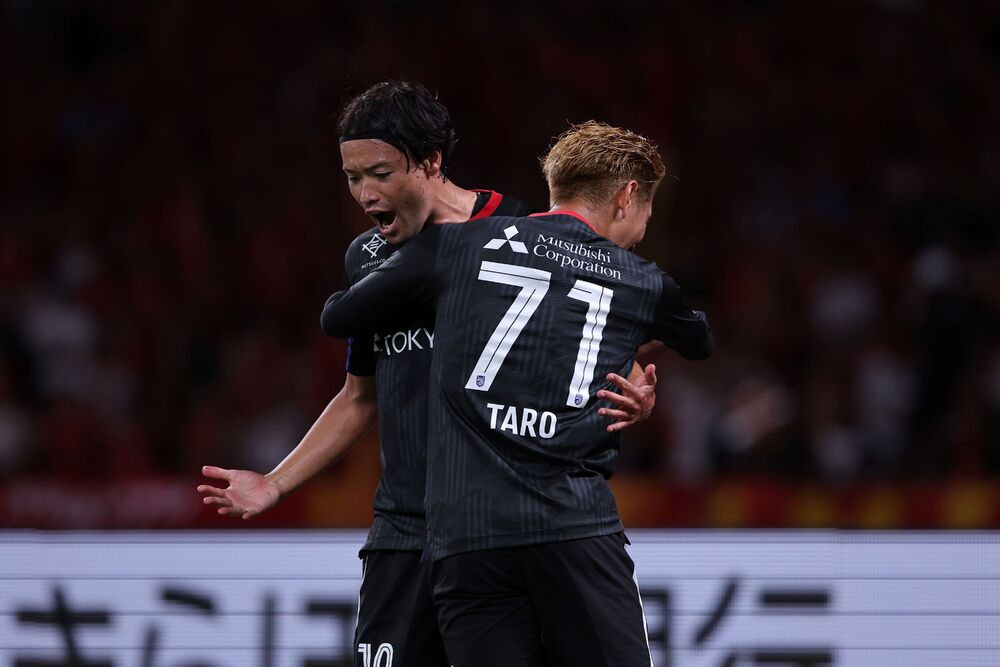
Starting with the opening goal that excited the large crowd gathered at the National, the team achieved a season-high victory with 4 goals. The previously subdued voices were lifted, and they laughed, saying, "The goal was a gift, and it was too good to be true," taking on a father's expression.
"I am most happy that I can enter with my children. However, I wanted to enjoy soccer. I haven't played in so many matches, so just being able to play on such a National stage makes me feel grateful. I want to show a cool side both as a player and as a father. It's not just about the goals, but I wanted the children to see me fighting hard on the pitch."
It was not just about scoring. The determination of a professional in his 16th season was evident throughout. He adeptly adjusted his teammates' positions and continuously encouraged them with his voice. He played fluidly as if he had wings, showing the surrounding players, who had been rigid, that "this is how you do it. It's okay to do it this way too." He brilliantly brought together a team that had been disjointed, opening the door to victory that had been closed for about two months, and welcomed joy back to the blue and red after seven matches.
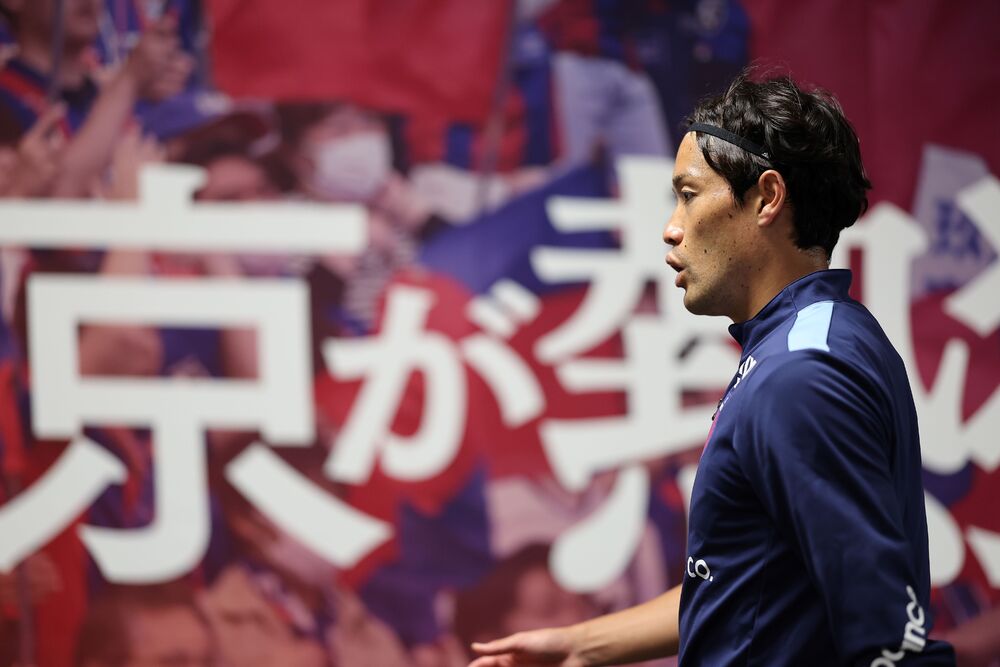
"I don't know everything, and I don't think I'm always right. It's important to do what is required, and it would be great if that goes well. But if it doesn't, we need to think and make judgments based on the situation. I've played in many matches in Tokyo, and I have to give back my experiences and share them. It's not just about words, but also about actions. However, I believe that can only be achieved by playing together. I think I've been able to show that a little."
With this victory as a turning point, the team will achieve three consecutive wins and return home to Ajinomoto Stadium. As if to be brought to life by the east, their performance has improved with each match. In recent seasons, they have faced their share of negative words and criticism. Nevertheless, the player wearing number 10 has proven that he is needed in blue and red. I have always thought of the fans and supporters as companions. So—.
"I don't really care about critical words. That's part of soccer, so I want people to express their thoughts freely. On the contrary, being praised for poor performance feels strange, and it's good to have various opinions. I am not influenced by that even a little bit. I am truly happy and grateful for those who support me. That said, I don't think much about negative opinions."
Higashi said, "That's not important, but recently it's been amazing," and moved on to the next topic.
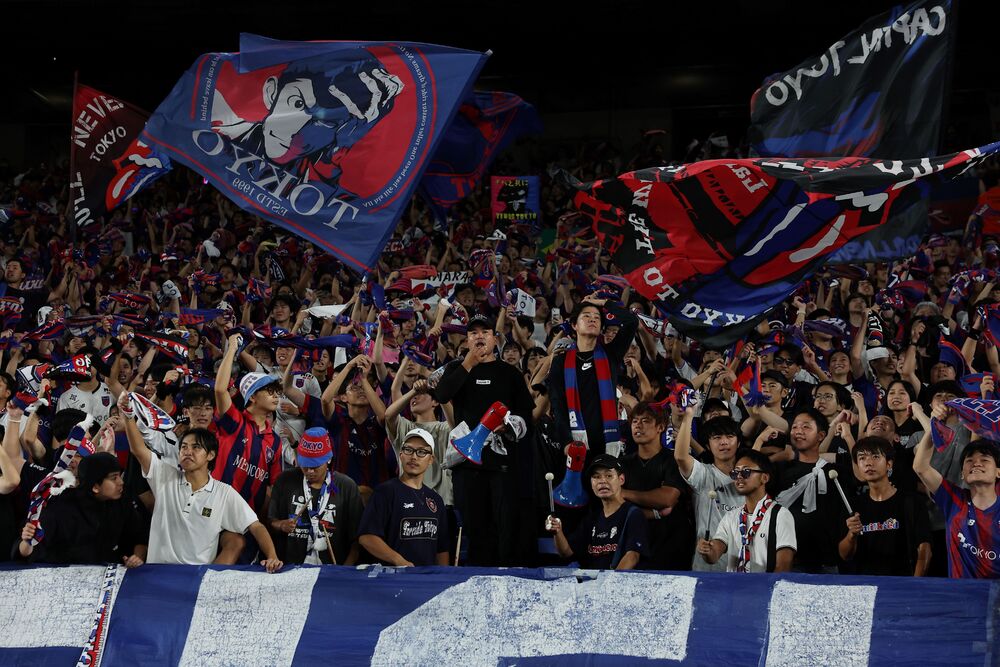
The fans and supporters have come together, right? They are really motivated, and that energy is reaching the players. It's reassuring to have that kind of support even away games. Everyone is increasing their passionate play in response to that. It really feels like we are all fighting together, and that's what makes it great. We have to do this to become number one. It's an extreme statement, but if there's even a one percent chance of becoming number one, we have to fight. Each match is for that purpose. There's nothing else. From here on, we need to express what we can in the remaining matches. Regardless of the opponent or the rankings, we all have to approach each match as if it's the most important one.
The ideal number 10 is──. The person from Tokyo still cannot provide that answer.
"I was asked quite a bit when I wore the number 10 during the London Olympics, but honestly, I don't really know. I purely think the number 10 is cool. It has a strong image of a technician or a fantasista, but I'm not just that; I fight and end up covered in mud after the match. However, recently I've come to think that a muddy number 10 is also cool. So, I think that kind of number 10 is good too. I'm not sure if I can live up to the ideals around me, but I intend to play with pride and honor."
No matter how much I felt like giving up, the pride I had built up in my back always gave me a little push of courage from behind. Okuhara, who pushed my back, also said with a smile, "I only have trust in Keigo now." It seems that by connecting and binding together like the two of them, the team becomes stronger.
"I thought that Okahara-san, who reached out to me during tough times, had a lot of manliness, and I really felt that this person is someone I can trust. I don't want to talk about anything other than my true feelings. Because it doesn't make sense to pretend or try to look cool. Life, just like soccer, is like that."
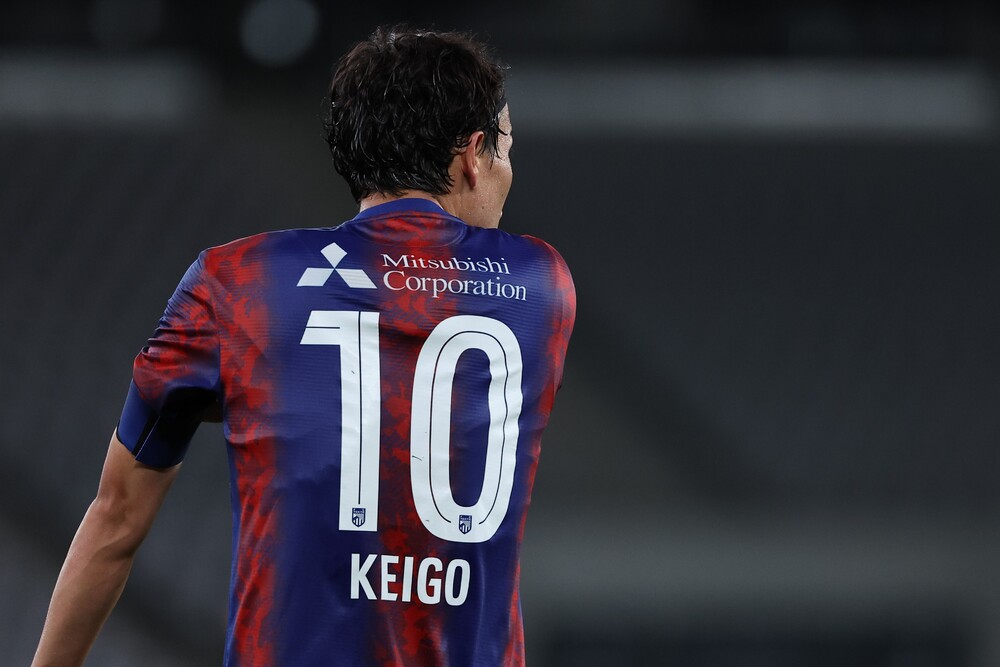
I have lived not by good and evil or profit and loss, but guided by beauty and ugliness. I struggle to express my honest feelings and pursue the scenery yet unseen. In the past few seasons, I have begun to exude an even more masculine aura.
After all, I can only think of Keigo HIGASHI; the number 10 in blue and red suits him best.
Text by Tadashi BABA (Freelance Writer)
